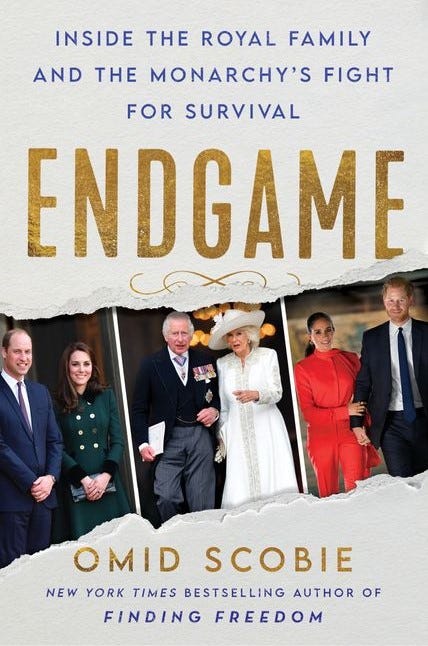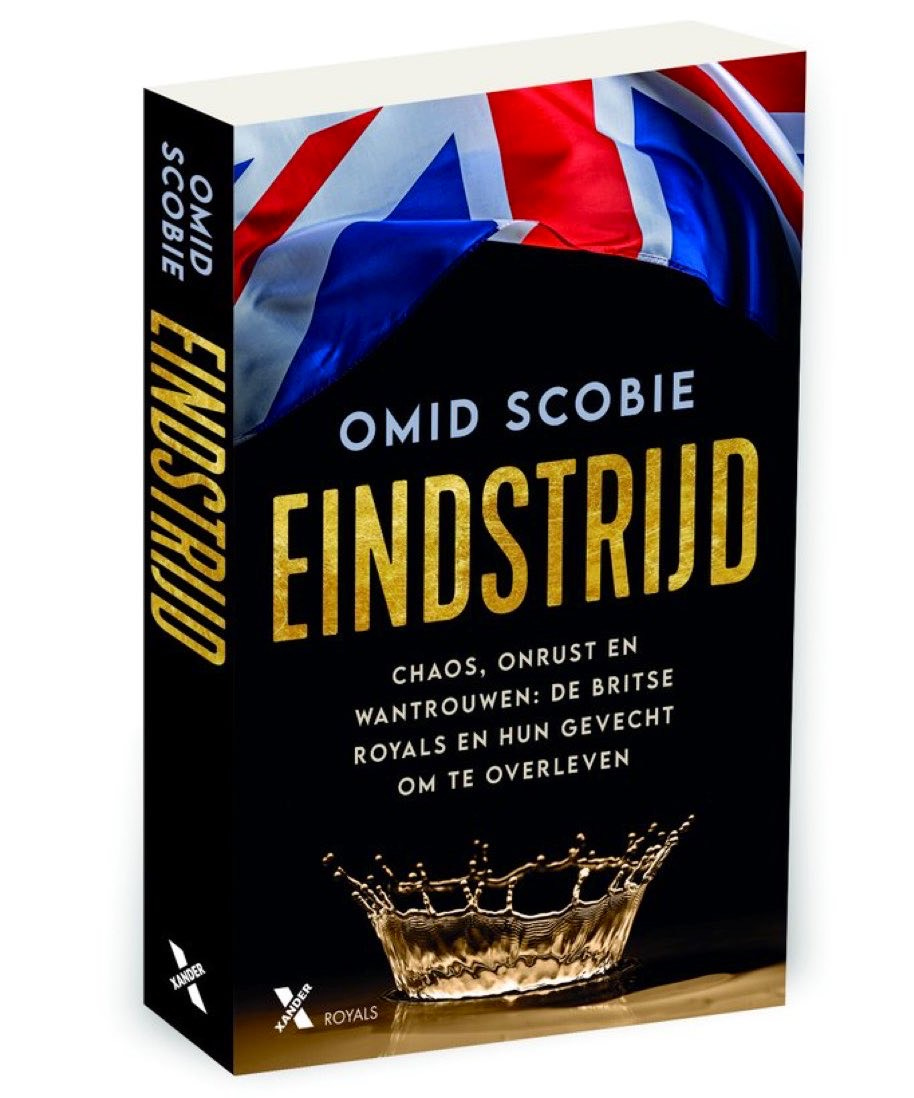Omid Scobie's 'Endgame' and the changing 'racist royal' claim
The angst swirling around Omid Scobie's new book keep getting more complex and more confusing
I’m a day late publishing this edition of my newsletter because the controversies swirling around Omid Scobie’s new royal book, Endgame, keep getting more complex and more confusing.
Endgame explores a “monarchy in crisis,” by “exposing the infighting, family deterioration, and outdated practices threatening its very future,” according to the publisher. To Omid Scobie, the House of Windsor was “tone-deaf, racist and financially reckless.” The reviews have been brutal, especially regarding his heroes-and-villains portrayal of the royals (Harry and Meghan are the good guys, while William is portrayed as power-hungry while Kate is branded as lazy). According to the New York Times, “much of Scobie’s new book is devoted to setting the record straight on petty slights against the Sussexes: exactly who made whom cry at a dress fitting; the double standards applied to royal bridezillas brandishing air freshener.”
The pro-Sussex tone wasn’t unexpected. Scobie had long been referred to as the “mouthpiece” of the Duke and Duchess of Sussex for his insider revelations since Meghan Markle began dating Prince Harry in 2016. In 2020, he co-wrote Finding Freedom, an intensely pro-Sussex recitation of the events leading up to their decision to step back from full-time royal work that spring. Though he and a Sussex spokesperson denied that the couple had helped Scobie with his book, in November 2021, Meghan apologized to a judge for misleading the court by forgetting that she’d extensively briefed an aide who then briefed Scobie for his book.
Then, on its publication day of Tuesday, November 28, the angst swirling around Endgame turned into a tornado of confusion and accusations. It began when Dutch royal journalist Rick Evers reported a bombshell — the Dutch translation includes a name purported to be the “royal racist” who talked about the skin colour of the Sussexes’ son, Archie. Scobie had previously said he knew the names but wouldn’t publish them for legal reasons. (More on the history of the “royal racist” below.)
Omid Scobie went into damage control mode, telling a Dutch network that “there’s never been a version [of Endgame] that I’ve produced that has names in it … so if there have been any translation errors I’m sure the publisher’s got it under control.”
The next day, Evers revealed another section of text that appears to have named a second royal. “I can’t believe that it was a translation error,” said Evers in a British interview. “We saw some passages were missing in the English version. Like, five sentences between the first and third part that wasn’t in the English version. So, something has been erased during the work that has been done for the book.”
The Dutch publisher pulled copies off the shelf “due to an error that occurred in the Dutch edition,” saying that the “rectified edition” will be available on December 8.
The evolving story of the ‘royal racist’
Keep reading with a 7-day free trial
Subscribe to WRITE ROYALTY by Patricia Treble to keep reading this post and get 7 days of free access to the full post archives.





